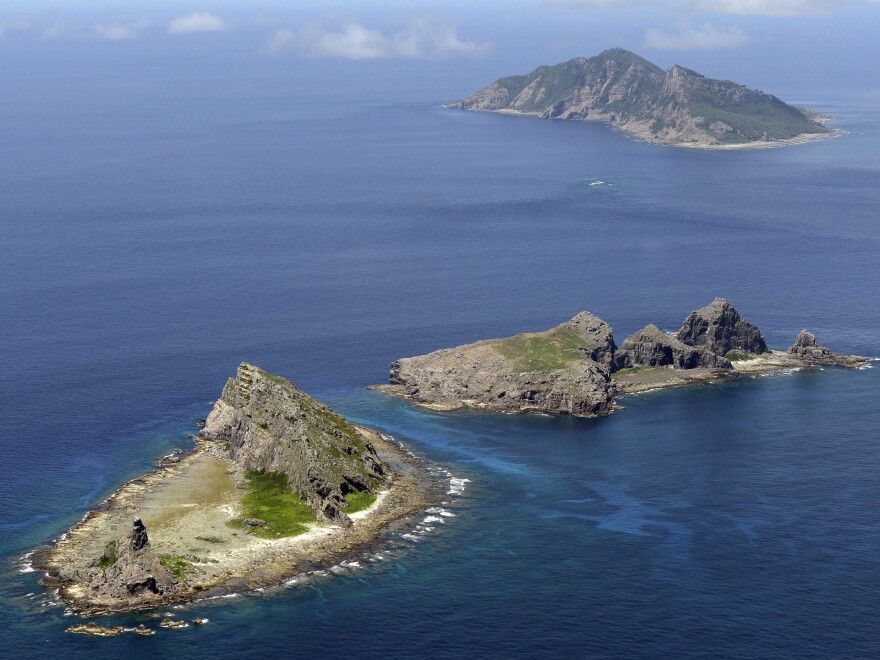China has been building up its military strength for some time now, and pushing ever farther from its coastline and into international waters. The real concern now is for miscalculation — particularly with Japan — that ends up in gunfire.
Just six months ago, the Pentagon released its annual report on China's military. Its defense budget was growing. The country was building more stealthy aircraft and submarines. It even bought an aircraft carrier from the Ukraine.
Pentagon official David Helvey highlighted particular areas of concern.
"In recent years, China has begun to demonstrate a more routine and capable presence in both the South and East China seas, which has increased regional anxieties over China's intentions," he said in May.

In fact, the East China Sea is exactly where regional anxieties have increased. China wants all aircraft to check in when they fly through its new, unilaterally declared air identification zone. The zone encompasses an island chain claimed by China but purchased last year by the Japanese government.
David Finkelstein, a China expert at the Center for Naval Analyses, a Pentagon think tank, says the situation has been escalating slowly over the past year.
"We started seeing a lot of activity with their respective coast guards, civilian paramilitary vessels and aircraft playing cat-and-mouse out there," he says.
Both the U.S. and Japanese military aircraft are ignoring the new identification zone. Some fear a repeat of an incident in the spring of 2001. That's when a Chinese fighter jet slammed into a U.S. reconnaissance aircraft it was tailing in the skies above the South China Sea, inside what China called its Exclusive Economic Zone. China detained the American crew.
Finkelstein and others say the situation now — involving the disputed islands — could lead to a far more dangerous scenario. That's because it involves one of China's most visceral subjects: Japan.
There are a variety of reasons why China and Japan cannot get along well, says Cheng Li of the Brookings Institution.
One of those reasons is Japan's brutal occupation of China during World War II that included the use of chemical and biological weapons. Japan has long been criticized for glossing over its recent past.
"Japanese never can acknowledge the atrocities and the terrible things they conducted in World War II, so there is a very strong anti-Japanese sentiment," Li says.
Add to that China's other main issue: sovereignty over territory it considers its own.
Anything that has to do with sovereignty, says Finkelstein, is "an open, visceral open wound in China's body."
"So, No. 1, this is an issue about sovereignty ... about sovereignty with Japan, and those wounds still have not healed," he says.
Doug Paal served as an unofficial representative to Taiwan under President George W. Bush. Now he's with the Carnegie Endowment for International Peace. He says a key question is this: What will China do if Japanese aircraft violate that new zone?
"They have a long list of possible behaviors, from attempting to shoot down, from intercepting aircraft," he says. "We need to have conversations about what their intentions are."
That's in the short term. In the long term, by 2020 the Pentagon says, China has another goal: being able to fight and win two regional conflicts, including one in the East China Sea.
Copyright 2021 NPR. To see more, visit https://www.npr.org.



